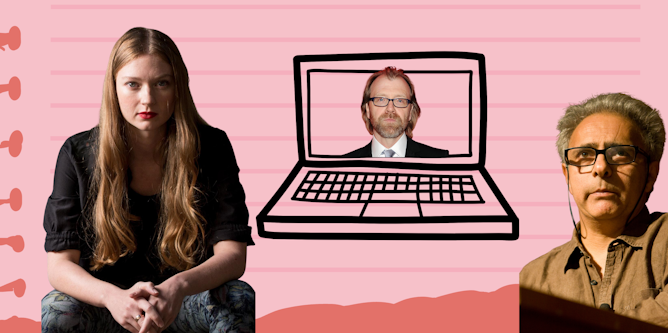|
In the lead-up to the next big climate conference, COP28 in Dubai, an independent group of global leaders called the Climate Overshoot Commission has been concentrating on a vexed question: what do we do when global warming pushes past the crucial threshold of 1.5℃?
Not if, but when. Let that sink in.
They haven’t given up on the central goal of the Paris Agreement, limiting global warming to 1.5℃ above the pre-industrial average. But they’re contemplating the possibility of exceeding and then returning to this “safe” level – rising into the danger zone, just for a little while.
The commission’s very existence is a tacit admission that the world has failed to avert dangerous climate change. As Jonathan Symons writes in his expert analysis of the report: “The idea we can avoid dangerous warming completely seems increasingly quaint. Like baggy jeans, the boy band NSYNC and the iPod shuffle, it reminds us of a more innocent era.”
The report recommends four ways to manage this period of “overshoot” and hopefully make it as short and painless as possible. Cutting emissions and phasing out fossil fuels remains the first priority. Step two is adapting to the climate change that’s now unavoidable. Step three is “draw-down”, pulling carbon dioxide out of the atmosphere and the ocean by any means possible.
Step four – attempting to deflect the Sun’s rays via “solar radiation management” – is a last resort. So much so that the commission wants governments to place a moratorium on it, for as long as it takes for scientists and policymakers get their heads around the prospect.
|

|
Clare Peddie
Deputy Environment + Energy Editor
|
|

Jonathan Symons, Macquarie University
A new report explores options for managing the period after global warming exceeds 1.5℃. This is called ‘climate overshoot’, because we’re pushing past the safe zone into dangerous climate change.
|

Kate Galloway, Griffith University
Some Voice opponents are claiming the new advisory body could lead to the conversion of private land title to native title. But this is not how native title law works.
|

Ross Buckley, UNSW Sydney; Natalia Jevglevskaja, UNSW Sydney
Australia’s new “consumer data right” leads the world in allowing data to be moved safely and efficiently. So what is it? And how can it help protect you and your personal data against data breaches?
|

Catherine Smith, The University of Melbourne; Helen Dickinson, UNSW Sydney
Many students with a disability are bullied, excluded and do not feel welcome in Australian schools. They cannot be ignored in the next National School Reform Agreement.
|

Yuting Zhang, The University of Melbourne; Judith Liu, University of Oklahoma; Nathan Kettlewell, University of Technology Sydney
We found rebates don’t do much to encourage older people to sign up for private health insurance.
|

Julian Koplin, Monash University
Pigs with human kidneys? Brain-powered computer chips? Science is creating new kinds of living things – and our moral understanding needs to catch up fast.
|

Julian Novitz, Swinburne University of Technology
So many authors are creating Substack newsletters – from Bri Lee’s magazine-like News & Reviews, to George Saunders’ writing tips and Hanif Kureishi’s reflections on being paralysed. But can it last?
|
Politics + Society
|
-
Michelle Grattan, University of Canberra
The costing, put out by the Climate Change and Energy Minister Chris Bowen, is a pre-emptive strike against the opposition, which is moving to include nuclear power in the energy policy it takes to the next election
-
Alexander Gillespie, University of Waikato
Police have warned climate protesters could face up to 14 years in jail for ‘endangering transport’ – longer than the maximum for serious crimes like ram-raiding.
-
Justin Hastings, University of Sydney
Russia can offer advanced military and satellite technology know-how to the North – as well as the promise of a future economic partner.
|
|
Health + Medicine
|
-
Lauren Ball, The University of Queensland; Emily Burch, Southern Cross University
If you try supplements, you still need to eat a healthy diet, exercise, reduce your stress, quit smoking and get enough sleep. Even then, they may still not be enough.
|
|
Science + Technology
|
-
Tyrone Berger, Deakin University
Apple just announced its latest suite of iPhones will not use the proprietary Lightning charger. This isn’t a surprise due to EU regulations announced last year.
|
|
Environment + Energy
|
-
Hussein Dia, Swinburne University of Technology
Reports of electric vehicle fires might lead some people to fear the growing numbers of these vehicles will increase fire risk. In fact, replacing petrol and diesel vehicles is likely to reduce it.
-
Luke Kelly, The University of Melbourne; David Bowman, University of Tasmania; Ella Plumanns Pouton, The University of Melbourne; Grant Williamson, University of Tasmania; Michael-Shawn Fletcher, The University of Melbourne
We used satellite data to create global maps of where and how fires are burning. Fire season lasts two weeks longer than it used to and fires are more intense. But there are regional differences.
|
|
Arts + Culture
|
-
Stuart Richards, University of South Australia
In A Haunting in Venice, Kenneth Branagh continues cinema’s long tradition of adapting Christie through the lens of horror.
|
|
| |
|
|
|
NIDA
Kensington NSW, Australia
•
Full Time
|

|
|
Auckland University of Technology
Auckland, New Zealand
•
Full Time
|

|
|
|
|
| |
| |

|
| |
| |
| |
Featured Events, Courses & Podcasts
|
View all
|
|
1 January 2023 - 7 October 2026
•
|

|
6 July - 6 October 2023
•
|

|
19 September 2023
•
Clayton
|

|
27 September 2023
•
South Bank
|

|
|
|
|
| |
| |
| |
| |
| |
|
|